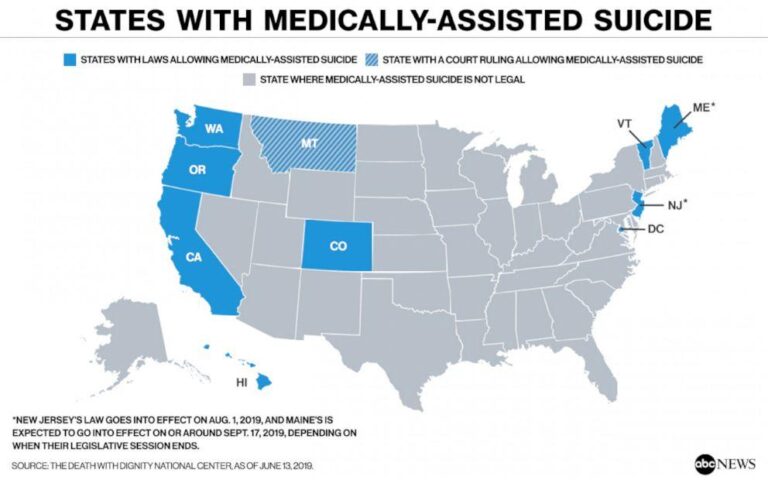The global assisted suicide movement is increasingly expanding its reach to vulnerable populations, including children, raising alarm among medical professionals, ethicists, and advocacy groups. As governments and healthcare providers grapple with the complex ethical and legal implications, critics warn of potential unintended consequences and “untold damage” to society’s most vulnerable. This article examines the growing trend, the arguments on both sides, and the mounting concerns surrounding assisted suicide initiatives that include minors.
Global Assisted Suicide Movement Expands Influence to Minors Raising Ethical and Legal Concerns
The push to expand assisted suicide laws to include minors is gaining traction in several countries, stirring significant controversy and debate. Advocates argue that terminally ill children deserve the right to choose a dignified death, emphasizing compassion and autonomy. However, critics warn of the profound ethical dilemmas and potential exploitation this movement may introduce. Legal experts highlight that extending such legislation to minors blurs the lines of consent and raises questions about the adequacy of mental capacity assessments in younger patients.
Key concerns fueling the debate include:
- The risk of coercion or undue influence from family or medical staff
- Unclear standards for evaluating a minor’s mental and emotional maturity
- Potential conflicts with international child protection laws
- The long-term societal implications of normalizing assisted death among children
| Country | Current Legislation | Proposed Changes |
|---|---|---|
| Netherlands | Over 12 allowed under strict conditions | Lower age limit to 10 debated |
| Belgium | All ages allowed since 2014 | Expanded psychological evaluation protocols |
| Canada | Adults only | Bill proposed for minors with terminal illness |
Experts Warn of Lasting Psychological and Societal Damage Stemming from Early Access to Assisted Death
Mental health professionals
Societal critics further argue that normalizing assisted death at such vulnerable stages risks desensitizing communities to the value of youthful life and resilience. Among the concerns raised are:
- Increased rates of depression and anxiety among at-risk youth
- Undermining efforts for mental health intervention and support
- Potential for coercion or undue influence within family or medical settings
| Key Concern | Potential Impact |
|---|---|
| Psychological Trauma | Long-lasting emotional damage for minors and relatives |
| Social Normalization | Reduced stigma toward assisted death, affecting prevention |
| Vulnerable Populations | Higher risk for exploitation in decision-making processes |
Advocates Call for Stricter Regulations and Enhanced Safeguards to Protect Vulnerable Children
Experts and child welfare organizations are urgently urging lawmakers to impose stricter controls on assisted suicide legislation, especially concerning minors. They warn that without enhanced safeguards, vulnerable children suffering from mental health crises or chronic conditions could be coerced or misled into irreversible decisions. The call for action highlights growing concerns over the global expansion of assisted suicide frameworks that may inadvertently prioritize autonomy over protection.
Among the proposed measures, advocates emphasize the importance of:
- Mandatory psychological evaluations conducted by independent experts to ensure decisions are well-informed and free from external pressures.
- Parental or guardian consent while safeguarding the child’s best interests to prevent exploitation.
- Regular legislative reviews to adapt to new research and evolving ethical standards.
- Transparent reporting systems to monitor incidents and outcomes, helping policymakers identify gaps and unintended consequences.
| Safeguard | Purpose | Status |
|---|---|---|
| Independent Evaluation | Ensure mental capacity and consent validity | Not universally mandated |
| Guardian Oversight | Protect against coercion | Varies by jurisdiction |
| Legislative Review | Adapt to ethical and medical developments | Infrequently conducted |
The Conclusion
As the global assisted suicide movement continues to expand its reach, the controversies surrounding its application-particularly involving minors-remain deeply contentious. Critics warn of profound ethical and societal implications, urging policymakers and communities to carefully weigh the potential consequences. As debates unfold worldwide, the need for transparent dialogue and rigorous safeguards becomes ever more critical in addressing this complex and sensitive issue.




